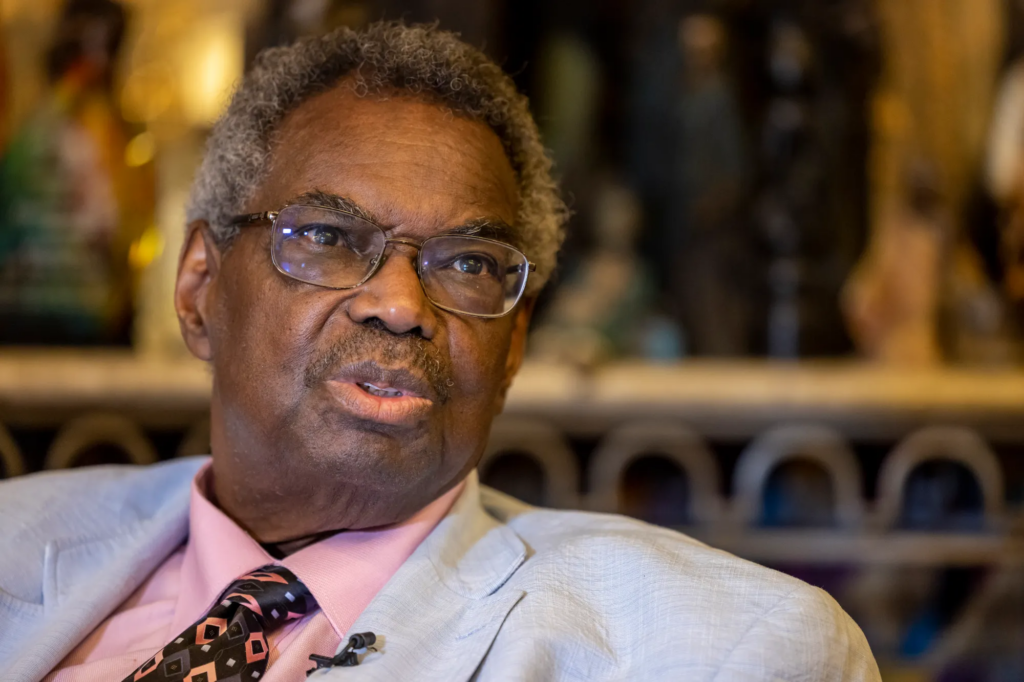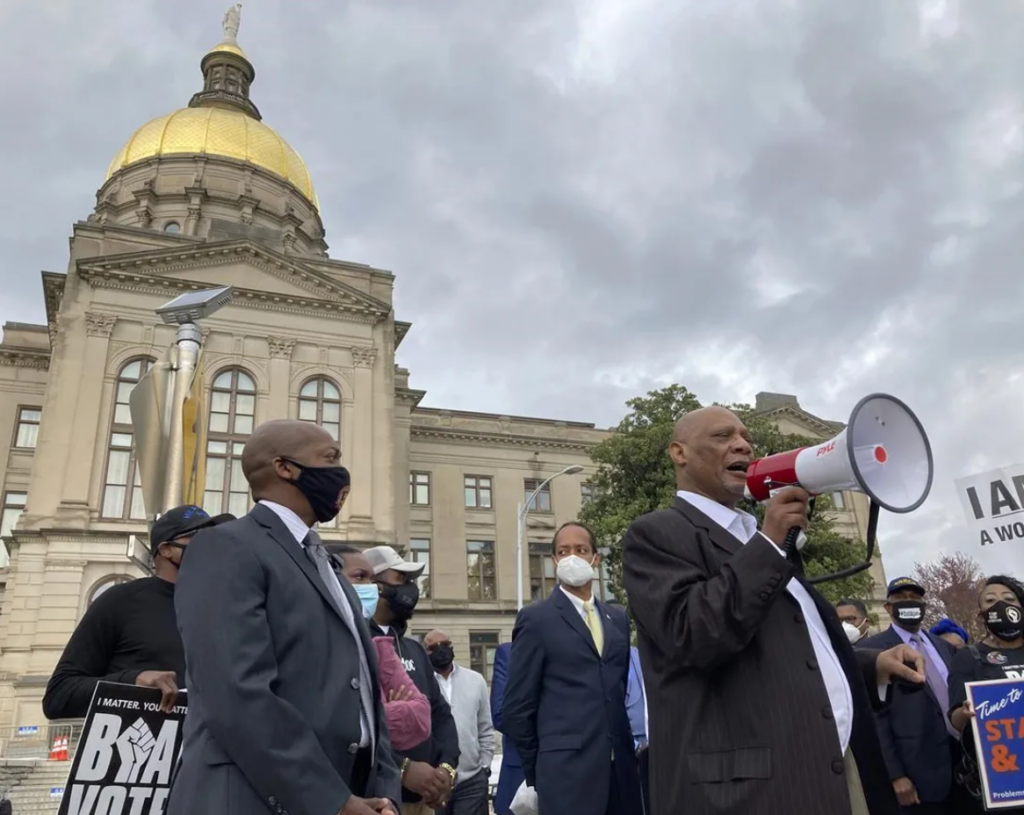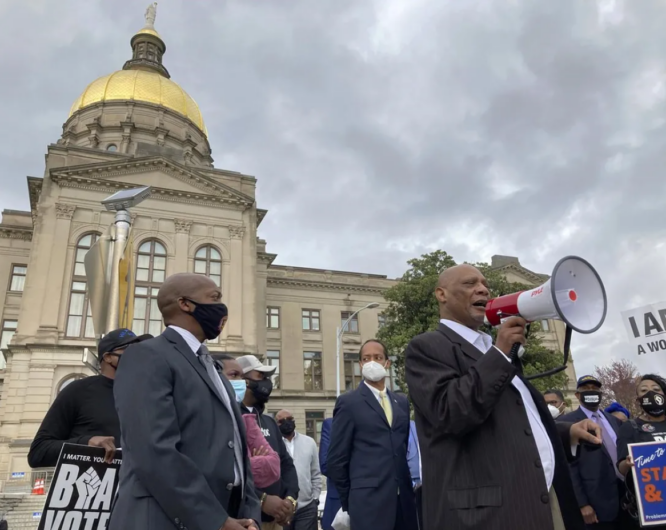Voting rights organizations believe the victory gives lower courts clear direction for similar claims against political maps in other states.
The court majority determined that Alabama concentrated Black voters in one district and spread them out among the others, making it harder for Blacks to vote for several candidates. The justices ruled that Alabama’s Black population is big and compact enough for a second district. In a state with 25% Black inhabitants, just one of its seven congressional districts is majority Black.
Republican legislators in other states have designed similar maps.
The Brennan Center’s senior director for voting and representation, Kareem Crayton, termed the court’s ruling “a welcome surprise” and said Louisiana and Georgia’s map challenges were most like Alabama’s.
The Supreme Court halted a Louisiana order authorizing a second majority-Black district while hearing the Alabama case. It may be lifted. Last year, a federal court found that several Georgia U.S. House and state legislative districts likely violated the Voting Rights Act, but he permitted them to be used in the 2022 elections because it was too near to the election to redraw them.

2024 elections may require redrawing maps in all three states.
Louisiana’s Democratic governor, John Bel Edwards, said the court’s ruling confirmed his opinion that the Republican-controlled Legislature’s plan violated the law.
As he stated while vetoing it, Louisiana’s congressional layout violates the Voting Rights Act. Louisiana has one-third Black voters. Louisiana can have two majority-Black congressional districts under the Voting Rights Act.
Rep. Troy Carter, a Black Democrat from Louisiana’s only majority-Black district, that the Legislature establish a second majority-minority district immediately.
Carter wrote in an email that the Supreme Court verdict was a success for Alabamians and Louisianans. “Now Louisiana can.”
Bishop Reginald Jackson, a plaintiff in one of the cases contesting Georgia’s congressional map, was pleased when he heard the judgment and expects it would help his case.
He joined the case for worries that the state’s Black population had grown but its Black congressional seats had dropped after the last redistricting.
“How could you have less Black representation when more Blacks are coming into the state?” Jackson, who leads 534 Georgia African Methodist Episcopal congregations with approximately 90,000 members,
Marina Jenkins, executive director of the National Redistricting Foundation, one of the organizations that has led voting rights challenges in the states, said the Alabama case and pending lawsuits in Georgia and Louisiana will likely allow Black voters to elect candidates in three more districts.
Other plaintiff organizations’ action in Texas might create seats where minority voters “have the opportunity to elect candidates of their choice that don’t exist now.”
Texas Democratic state Rep. Victoria Neave Criado, who leads the Mexican American Legislative Caucus, called the lawsuit a “major win for voting rights.”
After last year’s rejection of the constitutional right to abortion, she was anxious about the justices’ voting rights rulings and was comforted by Thursday’s verdict.

“As we are seeing the Latino community rise in many ways, we want to ensure that Latino power is translated into political power,” Neave Criado said.
According to the 2022 Census, 40% of Texans are Latino and 40% white.
The Mexican American Legal Defense and Educational Fund’s vice-president of litigation, Nina Perales, said the verdict prevents Texas from utilizing Alabama’s arguments in future lawsuits. Perales litigates a Texas complaint based on 2021 redistricting plans.
Numerous state legislature and local government voting districts have been challenged under section 2 of the Voting Rights Act, in addition to Texas’ congressional districts.
This week, attorney Mark Gaber claimed that Washington’s state legislative districts reduced Hispanic voters’ power. Next week, he will present a similar case concerning Native Americans and North Dakota’s districts. He feels Thursday’s verdict strengthens the case.
Alabama’s question is next. The state’s Republican attorney general, Steve Marshall, said he will defend the plan in federal court, including a full trial.
Montgomery’s Rev. Murphy Green said he’s delighted the court ruling is the first step.
He thanked God for forcing the Legislature to create a second Black congressional district.
“It looked ridiculous to those judges, as well,” he added of the majority’s five Supreme Court justices.
Alabama’s only Democrat, Rep. Terri Sewell, expects the issue to be brought back to the three lower court judges who unanimously determined the Legislature’s borders likely violated federal law. Black Sewell expected the new districts to be ready for the 2024 elections.
“They’re going to have to follow the ruling of the court,” she added, adding that a new congressional map will redraw her district.
“It’s a small price to carve up my district to have two majority minority districts,” she added.




